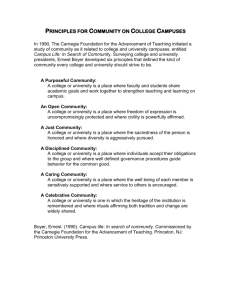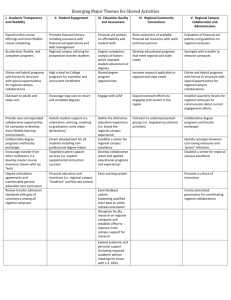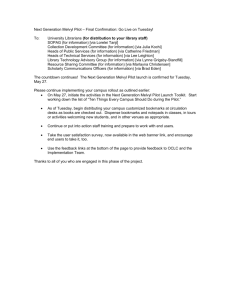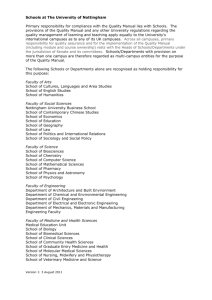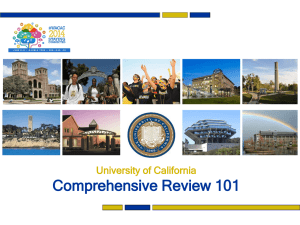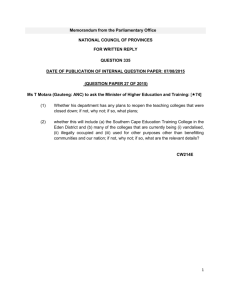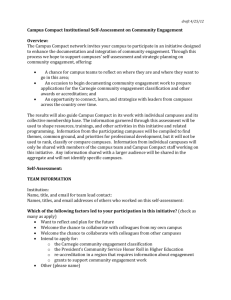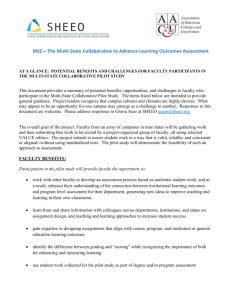Catholic Identity Mission Assessment SERVING AS A PILOT
advertisement
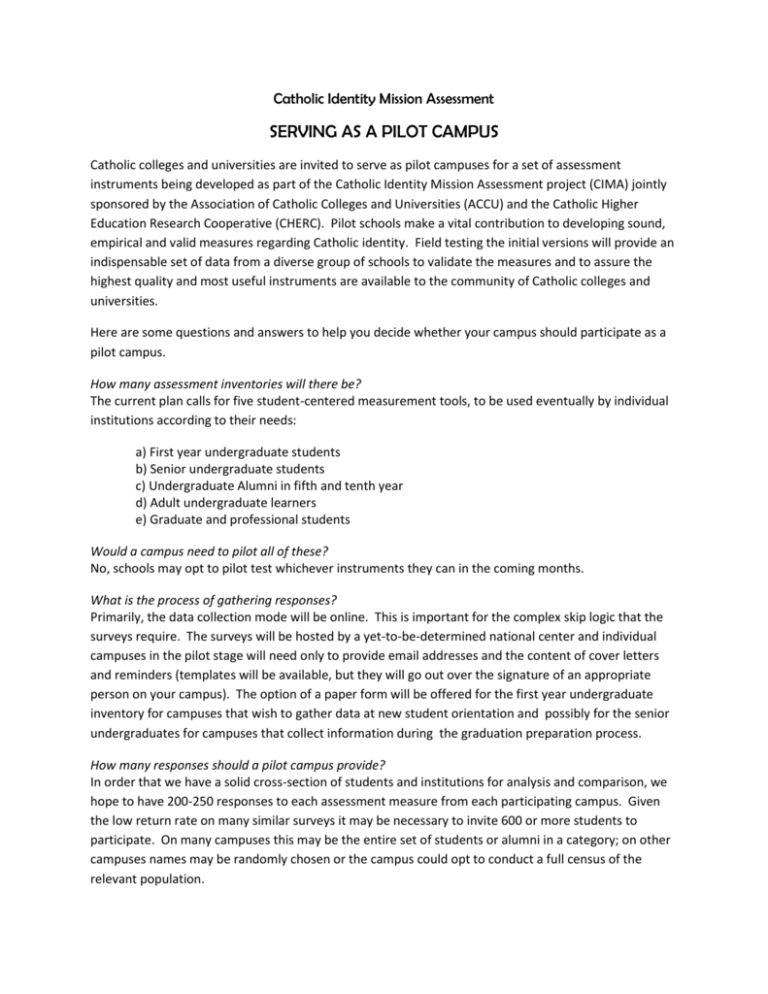
Catholic Identity Mission Assessment SERVING AS A PILOT CAMPUS Catholic colleges and universities are invited to serve as pilot campuses for a set of assessment instruments being developed as part of the Catholic Identity Mission Assessment project (CIMA) jointly sponsored by the Association of Catholic Colleges and Universities (ACCU) and the Catholic Higher Education Research Cooperative (CHERC). Pilot schools make a vital contribution to developing sound, empirical and valid measures regarding Catholic identity. Field testing the initial versions will provide an indispensable set of data from a diverse group of schools to validate the measures and to assure the highest quality and most useful instruments are available to the community of Catholic colleges and universities. Here are some questions and answers to help you decide whether your campus should participate as a pilot campus. How many assessment inventories will there be? The current plan calls for five student-centered measurement tools, to be used eventually by individual institutions according to their needs: a) First year undergraduate students b) Senior undergraduate students c) Undergraduate Alumni in fifth and tenth year d) Adult undergraduate learners e) Graduate and professional students Would a campus need to pilot all of these? No, schools may opt to pilot test whichever instruments they can in the coming months. What is the process of gathering responses? Primarily, the data collection mode will be online. This is important for the complex skip logic that the surveys require. The surveys will be hosted by a yet-to-be-determined national center and individual campuses in the pilot stage will need only to provide email addresses and the content of cover letters and reminders (templates will be available, but they will go out over the signature of an appropriate person on your campus). The option of a paper form will be offered for the first year undergraduate inventory for campuses that wish to gather data at new student orientation and possibly for the senior undergraduates for campuses that collect information during the graduation preparation process. How many responses should a pilot campus provide? In order that we have a solid cross-section of students and institutions for analysis and comparison, we hope to have 200-250 responses to each assessment measure from each participating campus. Given the low return rate on many similar surveys it may be necessary to invite 600 or more students to participate. On many campuses this may be the entire set of students or alumni in a category; on other campuses names may be randomly chosen or the campus could opt to conduct a full census of the relevant population. How have the inventories been developed? The CIMA project team will develop the instruments during an intensive workshop in June. Their work will draw on existing inventories, expert advice on assessment practices and the spiritual development of young adults, and collaborative work across mission and assessment professionals. The drafts will then be reviewed by representatives on a dozen or so campuses and by expert survey research colleagues. Have the inventories been properly reviewed for human subjects research? Currently, the measures are “works in progress.” However, before they are released for piloting, they will undergo human subjects review by the Institutional Review Board at the University of Notre Dame. If your campus does not accept a review from another institution, ACCU will provide the materials needed to submit the measures for your own human subjects review process. How will my campus benefit by serving as a pilot institution? As a pilot institution your campus has free and early access to data from your to an early analysis of the preliminary data.. Campuses will receive the sum of $250 per survey to offset local costs associated with distributing the surveys. (Typically this involves preparing a list of names and email addresses and launching an email request and follow messages). Finally, campuses have the satisfaction of contributing to a much needed project that will help Catholic higher education know itself better. Who gets to see my campuses data? All the pilot data will be held in confidence to be reviewed by the project team with institutional identifiers masked. Data from your campus will be accessible only to you. How do we sign up? Please contact Lexie Bradley at the Association of Catholic Colleges and Universities at abradley@accunet.org (202) 457-0650 x 224. She will send you an “Intent to Participate” form and will provide information about next steps and a time schedule. Thank you for considering including your school and contributing to the good of Catholic higher education . June 1, 2014
